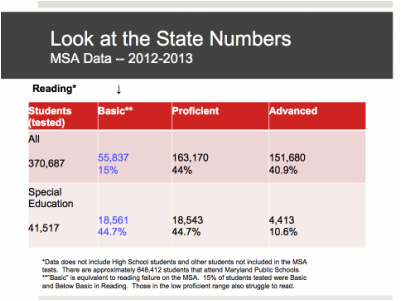
Take a look at the numbers--in Maryland, touted as a National BEST-- there are still thousands of students who graduate illiterate or drop out (see table "Look at the State Numbers").
The table shows the number of students who performed at or below basic on the MSA reading assessment in 2012-13 school year. At or below basic is a failure to read. It is illiteracy. In Maryland, there are policy makers who apply failure thinking to reading and learning--a student who fails will learn a lesson; perhaps this failure will make him or her stronger. Like the lady holding an injured dog that had been hit by a car who said: "well I guess he learned his lesson and won't be running out in the street again."
Teachers nod their heads in agreement when you ask about the kids who can't read; the kids on their way to failure. "You can tell in Kindergarten who will struggle"; and "We know which kids are in danger of failure, both academically and personally by first grade."
In St. Mary's County, if you struggle with reading, behavior, etc., by high school, you might have the option of the Fairlead Academies, which offer a smaller student to teacher ratio and specialized help. You have to fail to get in but at least it's an option other than failure.
Go sit at the County Courthouse and observe one day -- reading failure is now coupled with drug abuse and violence. Even if drug abuse is treated successfully, offenders are still illiterate. Maryland jails and juvenile facilities are filled with illiterate inmates, many of whom have a learning disability that could have been identified early, before failure was a FACT.
How to Prevent Reading Failure
Let's go back to the teachers -- the most important link in the literacy success chain. Teachers know which kids need interventions and want to help at risk students learn to read. Let's give teachers the tools and the opportunity to help students succeed by taking these 5 actions in Maryland:
- Screen all students for reading and language learning difficulties like dyslexia
- Require early intervention programs that are proven to work for children with language learning disabilities like dyslexia. These programs must be structured, explicit, systematic, intensive, and cumulative instruction provided by a well trained teacher in a small group setting.
- Require in-service and pre-service teachers are trained to teach students with dyslexia how to read, write and spell.
- Define Dyslexia in state education code
- Ensure access to assistive technology and accommodations for students with dyslexia
Decoding Dyslexia parent groups are changing state laws across the country to ensure that all students learn to read on grade level. At risk students who receive appropriate reading interventions before third grade can learn to read, write and spell. If Maryland provides these interventions as a matter of FACT to struggling students, we can prevent catastrophic FAILURE later. Together, parents, teachers and educators can change the paradigm about who learns from reading failure: and (hint, hint) it's not the students!
#DDChange14 #DDMD #DDSM14
Model Legislation & Resources
IDA's Knowledge and Practice Standards for Teachers of Reading
Literate Nation's Model Legislation
Additional Resources on Juvenile Justice & Literacy
Read or Go To Jail
Project of Hope / Juvenile Justice Literacy
NICHD Research
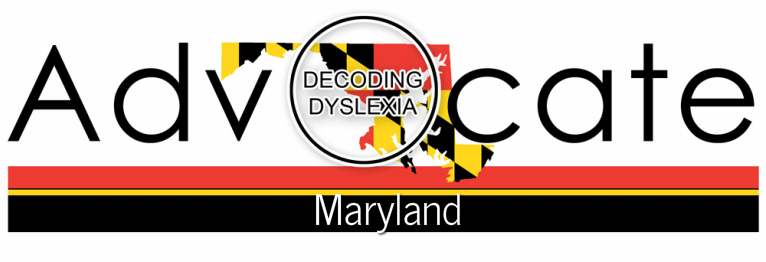
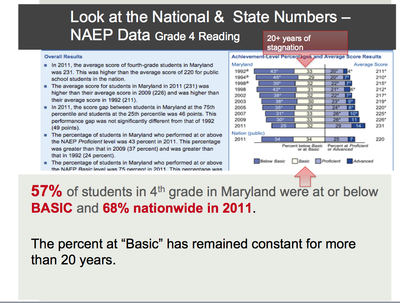
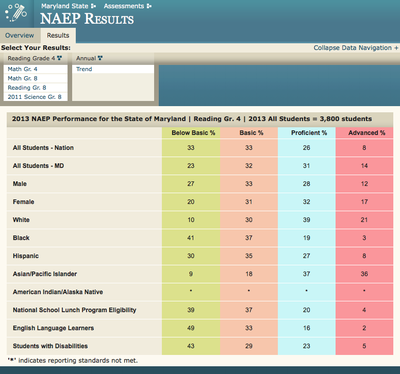
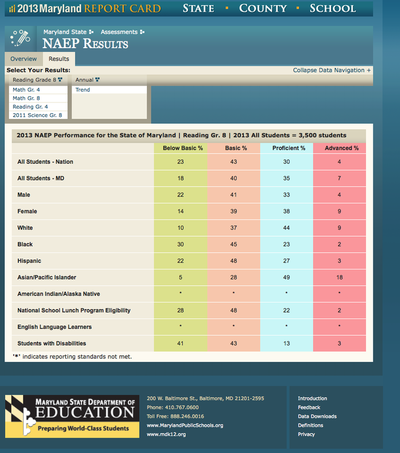
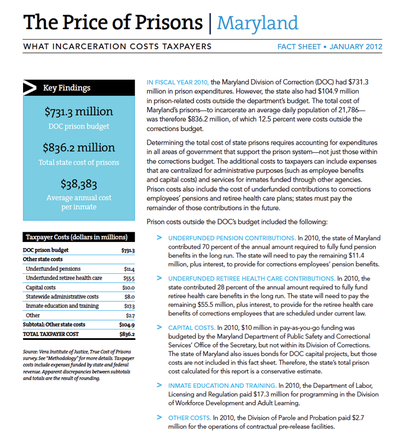
 RSS Feed
RSS Feed